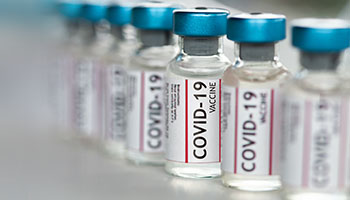HOW CAN WE HELP YOU? Call 1-800-TRY-CHOP
In This Section
Faculty Spotlight: Discussing Mentorship and mRNA With Paul Offit, MD

Paul Offit, MD
Editor’s Note: Welcome to our monthly Faculty Spotlight series, in which we sit down with faculty members at Children’s Hospital of Philadelphia Research Institute to learn more about their research and roles. Through these spotlights, our readers meet the diverse, dedicated, and distinctive individuals who lead our research community in our mission to improve children’s health. This year, we will be asking our featured scientists about mentorship — why it matters and how it has influenced their careers. This month, our quarterly featured senior faculty member is Paul Offit, MD, director of the Vaccine Education Center at CHOP. An internationally recognized expert in virology and immunology, Dr. Offit is the co-inventor of a landmark vaccine for the prevention of rotavirus gastroenteritis. In this Q&A, Dr. Offit discusses his experiences with mentorship. Stay tuned for more from our Faculty Spotlight series throughout this year!
How long have you been at CHOP, and why did you become interested in vaccine research?
When I came to CHOP in 1980 for an infectious diseases fellowship, Stanley Plotkin, MD, was chief of the Division of Infectious Diseases. Dr. Plotkin was the inventor of the rubella vaccine, had done seminal work on the rabies vaccine, and was in the midst of making a cytomegalovirus vaccine. So, my division chief was a vaccine expert – one who had taken vaccines from bench to bedside – and he was my mentor and role model.
What role did mentorship play in your career?
I think we have a number of mentors as we progress through our career. I have known Dr. Plotkin for the longest period of time. But there’s also Ellen Wald, MD, who was an infectious diseases specialist at the University of Maryland where I went to medical school and Ted Woodward, MD, an infectious disease specialist at Maryland. Then there’s Maurice Hilleman, PhD, the father of modern vaccines – he was responsible for either the primary research or development of nine to 14 of the current vaccines administered to children.
The way you get influenced by a mentor is they influence how you think about and approach a problem. In the case of Dr. Plotkin, that included dealing bravely with the public and the media. I watched Dr. Plotkin do that in the early 1980s when there was a concern that whooping cough vaccine was a cause for brain damage.
Interesting! So, what is your approach when dealing with such cases?
My approach reflects that H.L. Mencken line, “Never pick a fight with people who buy ink by the barrel.” In the world of science, there are not two sides to every story – there are scientific truths, and it’s not a matter of balance but rather a matter of perspective. And sometimes when reporters follow this mantra of showing two sides of a story when only one side is supported by science, they can do harm.
Going back to mentorship, why do you think it’s so important in an academic institution?
What a mentor offers is experience and expertise. When you’re starting out, you don’t have that, and a good mentor will be able to help, by example or by word, by availing you of that expertise and experience. Dr. Plotkin was such a brilliant scientist and a brilliant clinician and just watching how he thought through scientific and clinical problems provided a model for me in the future. Similarly, another co-inventor of the rotavirus vaccine, Fred Clark, PhD, also provided mentorship: When I first started writing papers and grants, he would read them and cross out every line and rewrite it.
What advice do you have for aspiring scientists?
Just the usual advice, which is to work hard and don’t get discouraged. If you work hard, inevitably good things will come. Maybe not immediately, but they will because the nature of science is always “two steps forward and one step back,” and you’re always learning as you go. Sometimes those lessons are hard and hard-earned, but always valuable.
In the next few years, what are some of the big research questions you hope to see addressed in the field of vaccine research?
Q&A With Paul Offit, MD
Though mRNA technology is almost 20 years old, what’s happening is that people are now seeing how this technology applied well to coronavirus and are wondering whether it applies well to a universal flu vaccine or a better malaria vaccine, or HIV vaccine, or better TB vaccine. I think for me, the most interesting aspect of the technology that really opens the door is that now we have experience with giving mRNA to pregnant women. That wasn’t always the case – pregnant women were not part of these large phase three trials, so you didn’t have any sort of safety or efficacy data. Now, there are hundreds of thousands of women who got the vaccine, and it allows you to have very real database for safety. Now you have safety data for pregnant women, and you could include a group in a trial for RSV or group B strep or meningococcal vaccine. So I think that’s one of the big advances of mRNA technology.
Read more from Dr. Offit in this coronavirus Q&A on Cornerstone.
